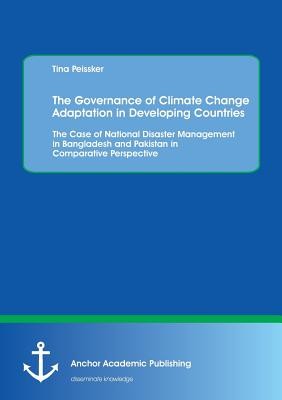
- We will send in 10–14 business days.
- Author: Tina Peissker
- Publisher: Anchor Academic Publishing
- Year: 2013
- Pages: 112
- ISBN-10: 3954890496
- ISBN-13: 9783954890491
- Format: 14.8 x 21 x 0.7 cm, minkšti viršeliai
- Language: English
- SAVE -10% with code: EXTRA
The Governance of Climate Change Adaptation in Developing Countries (e-book) (used book) | bookbook.eu
Reviews
Description
The prospect of the adverse effects that global climate change will have on human societies, opened up a discourse about the way adaptation should be managed. In order to finance adaptation measures in the most severe affected countries, the parties of the Kyoto Protocol established the Adaptation Fund in 2007. In view of the limited resources that are available for adaptation, scales for the prioritization of countries that are based on their suspected vulnerability, have been developed in literature. But so far, indicators of vulnerability reflect only the general indicators of human development, and therefore, fail to capture the complex structures of vulnerability. In order to capture the mentioned complexity in a more satisfactory way, this book highlights the theory of collective learning. The collective learning approach assumes that vulnerability can be significantly decreased when governance systems adapt to external changes through collective learning processes. This study connects to this notion, and therefore, it assesses the influence of collective learning processes on the vulnerability of the Bangladeshi and Pakistani society towards flood hazards. This determinant of vulnerability is used to capture the matter's complexity.
EXTRA 10 % discount with code: EXTRA
The promotion ends in 21d.05:00:48
The discount code is valid when purchasing from 10 €. Discounts do not stack.
- Author: Tina Peissker
- Publisher: Anchor Academic Publishing
- Year: 2013
- Pages: 112
- ISBN-10: 3954890496
- ISBN-13: 9783954890491
- Format: 14.8 x 21 x 0.7 cm, minkšti viršeliai
- Language: English English
The prospect of the adverse effects that global climate change will have on human societies, opened up a discourse about the way adaptation should be managed. In order to finance adaptation measures in the most severe affected countries, the parties of the Kyoto Protocol established the Adaptation Fund in 2007. In view of the limited resources that are available for adaptation, scales for the prioritization of countries that are based on their suspected vulnerability, have been developed in literature. But so far, indicators of vulnerability reflect only the general indicators of human development, and therefore, fail to capture the complex structures of vulnerability. In order to capture the mentioned complexity in a more satisfactory way, this book highlights the theory of collective learning. The collective learning approach assumes that vulnerability can be significantly decreased when governance systems adapt to external changes through collective learning processes. This study connects to this notion, and therefore, it assesses the influence of collective learning processes on the vulnerability of the Bangladeshi and Pakistani society towards flood hazards. This determinant of vulnerability is used to capture the matter's complexity.


Reviews